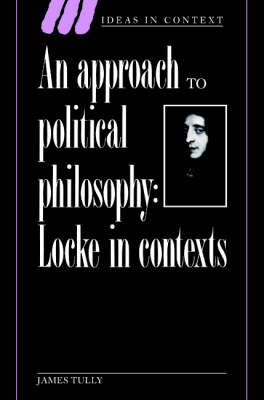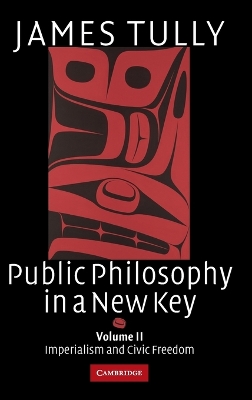Ideas in Context
1 primary work • 4 total works
Book 93
Public Philosophy in a New Key: Volume 1, Democracy and Civic Freedom
by James Tully
Published 18 December 2008
These two ambitious volumes from one of the world's most celebrated political philosophers present a new kind of political and legal theory that James Tully calls a public philosophy, and a complementary new way of thinking about active citizenship, called civic freedom. Professor Tully takes the reader step-by-step through the principal debates in political theory and the major types of political struggle today. These volumes represent a genuine landmark in political theory from the author of Strange Multiplicity, one of the most influential and distinctive commentaries on politics and the contemporary world published in recent years. This first volume of Public Philosophy in a New Key consists of a presentation and defence of a contextual approach to public philosophy and civic freedom, and then goes on to study specific struggles over recognition and distribution within states.
An Approach to Political Philosophy: Locke in Context brings together Professor Tully's most important and innovative statements on Locke in a systematic treatment of the latter's thought that is at once contextual and critical. Each essay has been rewritten and expanded for this volume, and each seeks to understand a theme of Locke's political philosophy by interpreting it in light of the complex contexts of early modern European political thought and practice. These historical studies are then used in a variety of ways to gain critical perspectives on the assumptions underlying current debates in political philosophy and the history of political thought. The themes treated include government, toleration, discipline, property, aboriginal rights, individualism, power, labour, self-ownership, community, progress, liberty, participation, and revolution.
Public Philosophy in a New Key: Volume 2, Imperialism and Civic Freedom
by James Tully
Published 1 January 2008
These two ambitious volumes from one of the world's most celebrated political philosophers present a new kind of political and legal theory that James Tully calls a public philosophy, and a complementary new way of thinking about active citizenship, called civic freedom. Professor Tully takes the reader step-by-step through the principal debates in political theory and the major types of political struggle today. These volumes represent a genuine landmark in political theory. In this second volume, Professor Tully studies networks and civic struggles over global or imperial relations of inequality, dependency, exploitation and environmental degradation beyond the state. The final chapter brings all of the author's resonant themes together in a new way of thinking about global and local citizenship, and of political theory in relation to it. This forms a powerful conclusion to a major intervention from a vital and distinctive voice in contemporary thought.


